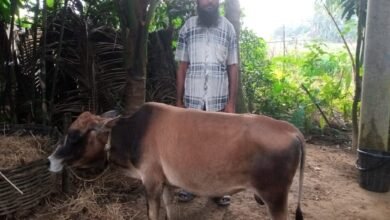Futuredesh’s Transformative Farming Ventures in Laxmipur: Ushering in a New Era of Rural Development

Tucked away in the serene union of Laxmipur, in Bangladesh’s Mymensingh District, a quiet yet profound transformation is taking place. Surrounded by paddy fields, grazing pastures, and small rural villages, this community is set to become the focal point of a groundbreaking initiative that promises to reshape farming practices and revitalise the local economy. Laxmipur is at the heart of Futuredesh’s ambitious plan to connect global investors with local farmers, creating economic and social opportunities in the process.
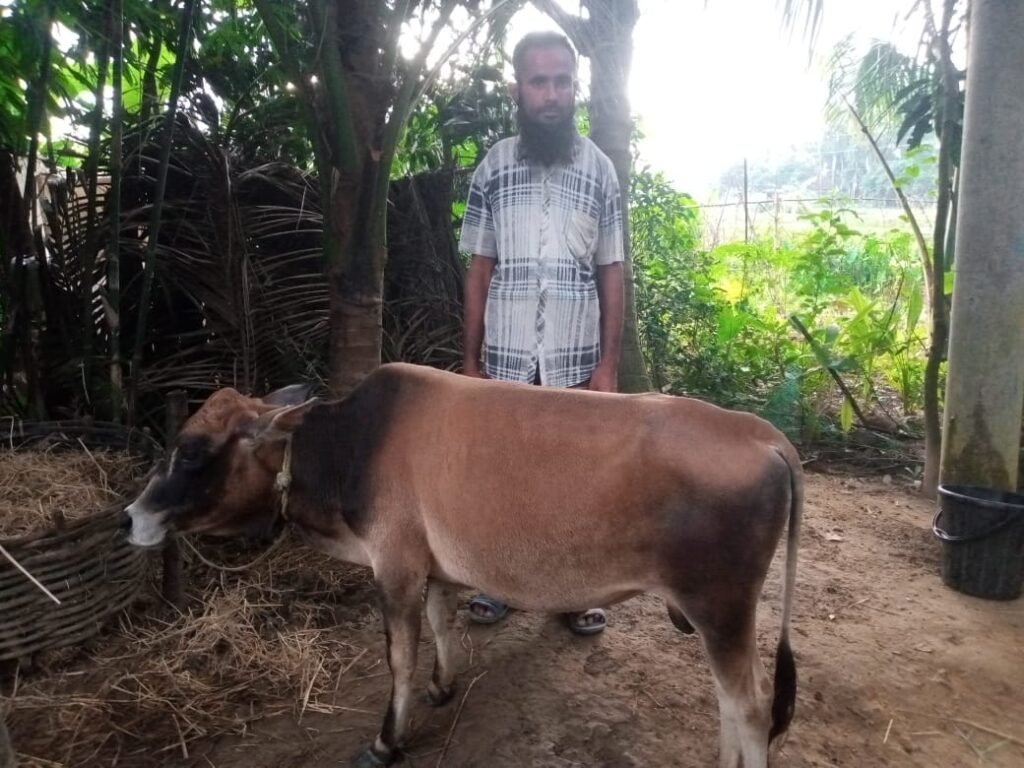
Futuredesh, a pioneering social capital venture, has launched four contract farming clusters across Mymensingh, with Laxmipur emerging as a key player. Under the guidance of Cluster Manager Protul Ghagra, a team of 45 farmers is working on livestock contract farming, developing natural feed, and planning future agricultural projects. However, what truly sets this model apart is its emphasis on profit-sharing between investors and farmers—a partnership that represents a departure from traditional farming methods.
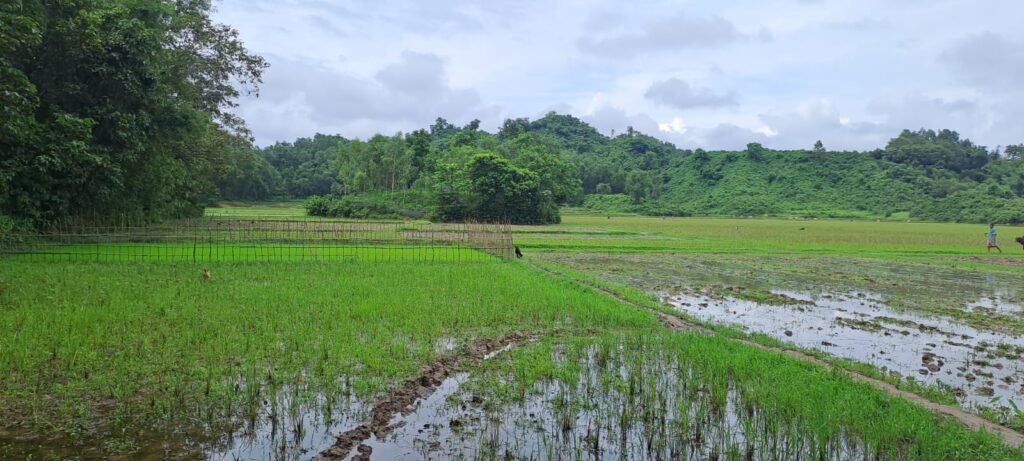
The Power of Profit Sharing
For generations, farmers have faced the uncertainties of fluctuating market prices and volatile yields. Futuredesh is changing this narrative by establishing a 50/50 profit-sharing model, where farmers and investors share the rewards—and risks—equally. This new approach offers farmers in Laxmipur greater financial security, allowing them to focus on raising livestock and crops without the burden of market volatility.
“Profit-sharing gives us confidence,” says Protul Ghagra. “Instead of worrying about unpredictable market prices, farmers know they have a guaranteed partnership. They share both the rewards and the risks with investors, which encourages them to innovate and grow.”
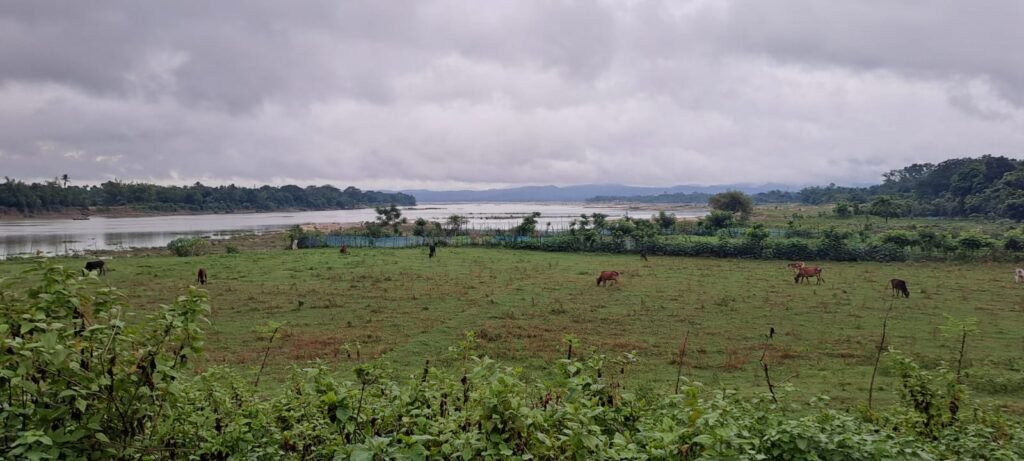
Livestock farming is currently the primary focus in Laxmipur, with an emphasis on developing sustainable natural feed alternatives. These efforts not only reduce dependency on costly imported feed but also improve livestock health and productivity, creating a more eco-friendly farming system.
Bringing Global Capital to Rural Farms
What makes Futuredesh’s venture truly revolutionary is its approach to social capital. By attracting investments from UK-based and international investors, particularly those from the Bangladeshi diaspora, Futuredesh is fostering a unique partnership between rural farmers and global financiers. These investors are not merely donating—they are making a conscious investment in Laxmipur’s farming clusters, with both financial and social returns in mind.
Beyond livestock farming, Futuredesh is laying the groundwork for projects involving cash crops and traditional craft production. Laxmipur has a rich heritage of artisanal craftsmanship, particularly in home textiles. With capital from global investors, this project aims to revitalise these traditional skills, enabling villagers to produce handmade textiles for international markets. The demand for ethically sourced, traditional crafts is growing, and this initiative promises to boost incomes while preserving cultural heritage.

A Changing Landscape and Rural Economy
The impact of these ventures is expected to go far beyond immediate financial gains. Laxmipur’s landscape, traditionally dominated by subsistence farming, is being reshaped into a hub for profitable agricultural activities, livestock farming, and artisanal crafts. For the farmers, the introduction of modern practices, supported by overseas capital, means more than just survival—it means opportunity. The profit-sharing model gives them a genuine stake in their success, empowering them to build sustainable livelihoods for themselves and their families.
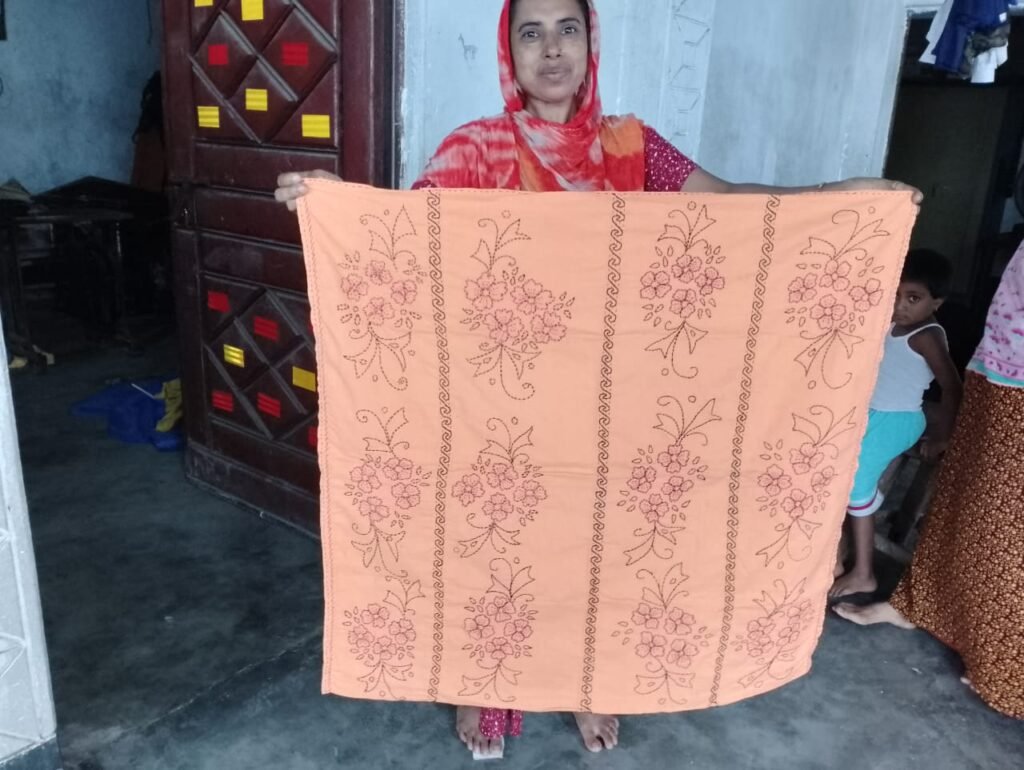
The benefits, however, are not limited to individual farmers. Futuredesh’s ambitious “My Village Project” aims to engage every village in the region in initiatives such as tree plantation, modern irrigation systems, and renewable energy projects. Tree planting will contribute to environmental conservation and provide additional income through fruit harvests and timber sales. Modern irrigation systems, meanwhile, will ensure that farmers can cultivate crops year-round, regardless of seasonal weather conditions.
The project’s most forward-thinking aspect, however, lies in its focus on renewable energy. By introducing solar power and other sustainable energy solutions, Futuredesh plans to reduce villages’ reliance on expensive and often unreliable electricity. Access to renewable energy will allow farmers and small business owners to expand their operations, store perishable goods, and power machinery, thereby transforming the local economy and improving quality of life.
A Vision for the Future
The changes taking root in Laxmipur represent a blueprint for the future of rural development in Bangladesh. As contract farming clusters grow and become more sustainable, backed by global investment and bolstered by local innovation, the farmers of Laxmipur are poised to enter a new era of prosperity. The profit-sharing model ensures that the benefits are fairly distributed, helping to lift entire communities out of poverty while providing financial returns for investors.

As Futuredesh’s model proves its success, there is potential for it to be replicated across Bangladesh and in other developing countries facing similar challenges. The ripple effect of this transformation will not only uplift the farmers and their families but also create a legacy of progress and self-sufficiency for future generations.
Laxmipur, with its picturesque landscape of verdant fields and quiet village homes, is on the verge of becoming a symbol of hope for rural Bangladesh. As the sun rises over the village each day, it heralds the dawn of a brighter future—one where global investors and local farmers work hand in hand to cultivate a new, prosperous chapter for rural life.





